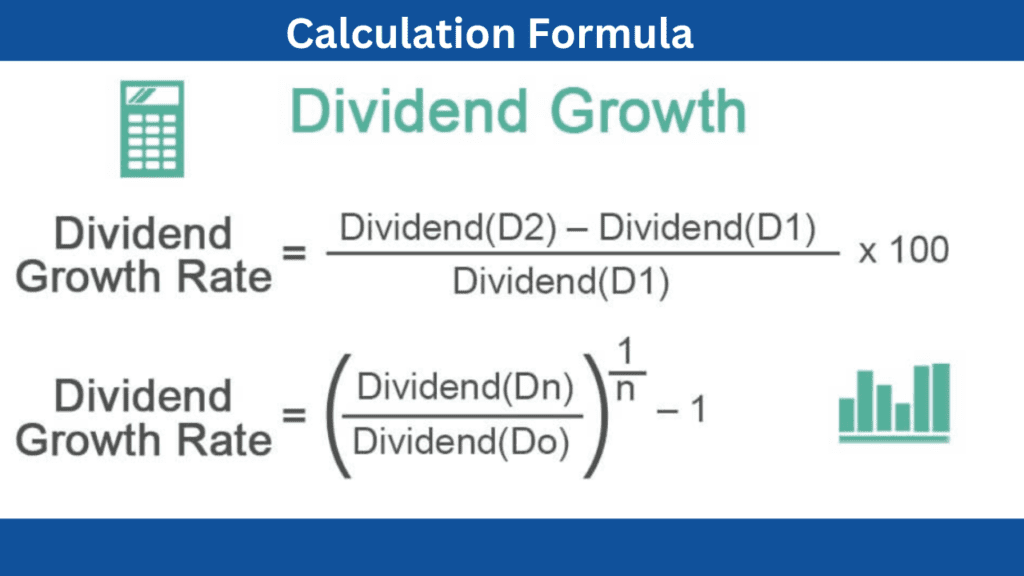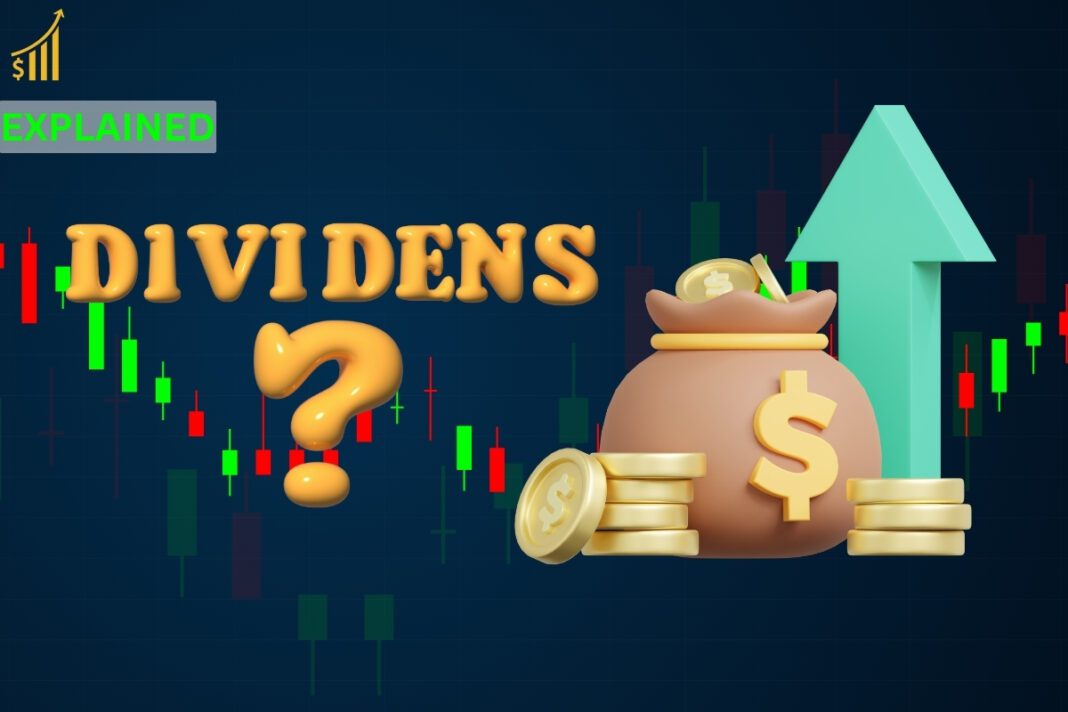Dividends are a portion of a company’s profits paid to shareholders. They can be a valuable source of income for investors and signal a company’s financial health. This guide will explain what dividends are, how they work, and how to invest in dividend-paying stocks.”
In the U.S. share market, a dividend is a distribution of a company’s earnings to its shareholders. Let me break it down for you:
What is a Dividend?
A dividend is a portion of a company’s profits that is distributed to its shareholders. It’s essentially a payment made by the company to its owners for their investment. Think of it like a bonus you receive for being a part-owner of the company.
Dividends are typically paid out quarterly, but some companies pay them annually or even semi-annually. They can be a valuable source of income for investors, especially for those who are retired or nearing retirement. They can also be a signal of a company’s financial health. Companies that pay regular dividends are generally considered to be stable and profitable.

Cash Dividend: Most dividends are cash dividends, which means companies pay out cash to shareholders on a per-share basis. For example, if a company declares a dividend of 20 cents per share, an investor owning 100 shares would receive $20 in cash.
Stock Dividend: In addition to cash, companies can also distribute dividends in the form of additional shares of stock. When a company issues a stock dividend, it provides existing shareholders with a certain percentage increase in the number of shares they own. For instance, if a company issues a 5% stock dividend, it would grant 0.05 additional shares for every share owned by a shareholder. So, an owner of 100 shares would receive five extra shares.
Dilution: Stock dividends can lead to dilution. Dilution occurs when a company issues new shares to existing shareholders. The total number of outstanding shares increases, which can reduce earnings per share (EPS) if the company’s net income does not increase proportionately. However, shareholders receive additional shares, even though their ownership stake is diluted.
Company’s Choice: Companies may choose to pay dividends in stock rather than cash to preserve cash reserves. It allows them to reward shareholders without reducing their cash balance.
Here are some key things to know about dividends:
They are not guaranteed: Companies can choose to reduce or even eliminate their dividends at any time. This could happen if the company is struggling financially or if it needs to reinvest its profits back into the business.
They are taxed as income: Investors need to factor in the tax implications when considering their overall return from dividends.
There are different types of dividends: The most common type of dividend is a cash dividend, which is paid out in cash. However, companies can also pay dividends in the form of stock (stock dividends) or other assets.
Pros and Cons of dividend
Pros of Dividend:
- Passive income: Dividends provide a steady income stream without requiring you to sell your shares actively. This can be especially beneficial for retirees or those seeking additional income.
- Signal of financial health: Companies that pay regular dividends are generally considered to be stable and profitable, as they have consistent earnings to distribute. This can instill confidence in investors.
- Tax advantages: In some cases, dividends may be taxed at a lower rate than capital gains, depending on your tax bracket and country. This can make them a more tax-efficient way to generate income.
- Reduced volatility: Dividend-paying stocks tend to be less volatile than non-dividend-paying stocks, as they represent more mature and established companies. This can provide some stability to your portfolio during market downturns.
- Potential for reinvestment: You can choose to reinvest your dividends back into the same company, potentially compounding your returns over time.
Cons of Dividends:
- Not guaranteed: Companies can reduce or eliminate their dividends at any time, especially if they face financial difficulties or need to reinvest profits back into the business.
- Limited growth potential: Companies that prioritize dividend payouts may reinvest less of their profits back into the business, potentially limiting their growth potential compared to non-dividend-paying companies.
- Tax implications: Dividends are typically taxed as income, so you need to factor in the tax impact on your overall return.
- May not be suitable for all investors: Dividend-paying stocks may not be ideal for all investors, particularly those focused solely on capital appreciation or with shorter investment horizons.
How do companies release dividends?
Earning Profits: It all starts with the company generating profits. This is essential, as dividends are paid out of a company’s earnings, not its principal capital.
Board Approval: The company’s board of directors proposes a dividend amount, considering factors like profitability, future investment needs, and shareholder expectations. They then vote to approve the dividend.
Announcement: Once approved, the company publicly announces the dividend, including the amount per share, the record date, and the payment date. This announcement typically happens several weeks before the payment date
Ex-Dividend Date: This is the crucial date to remember. Investors who purchase shares after this date will not be eligible for the current dividend payout. If you buy shares on or before the ex-dividend date, you’ll receive the dividend regardless of when you sell the shares.
Record Date: This is the date the company uses to determine which shareholders are eligible to receive the dividend. Only shareholders listed on the company’s records as of this date will receive the payout.
Payment Date: On this date, the company distributes the dividend to eligible shareholders. It can be paid in cash, electronically deposited into brokerage accounts, or reinvested in additional shares (through a Dividend Reinvestment Plan or DRIP).
Additional Notes:
- Some companies pay dividends quarterly, while others pay annually or semi-annually.
- The dividend amount per share can be fixed or variable, depending on the company’s policy and financial performance.
- Investors can track upcoming dividend announcements and dates on financial websites and through their brokerage accounts.
Disclaimer: Ultimately, the decision of whether or not to invest in dividend-paying stocks depends on your individual investment goals, risk tolerance, and financial situation. Carefully consider both the pros and cons before making any investment decisions.
What is a Dividend?
A dividend is a portion of a company’s profits that is distributed to its shareholders. It’s essentially a payment made by the company to its owners for their investment. Think of it like a bonus you receive for being a part-owner of the company.
How they do work?
Dividends are typically paid out quarterly, but some companies pay them annually or even semi-annually. They can be a valuable source of income for investors, especially for those who are retired or nearing retirement.
What are the advantage of Dividends ?
Stock dividends have a tax advantage for investors. Like any stock shares, they are not taxed until the investor sells those shares


